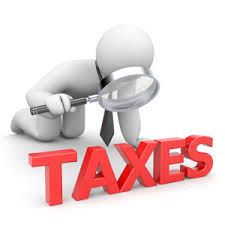This is a broad subject so it is difficult to get into particulars because there are so many factors to consider but in easy terms, a business can be registered under one of two different tax systems:
- Accounts
- Fixed tax
It is important to choose wisely at the start of your business because once you register under a particular system, the tax office will not allow you to change within a three year period so unfortunately, you cannot test the waters and change your mind later if it doesn’t work out for you.
Accounting System
There are two options here, one is, “Estimación Directa Normal de IRPF” which is for those extremely successful businesses that invoice more than 600.000€ per year.
The other option is “Estimación Directa Simplificada de IRPF” for businesses that invoice under 600.000€ per year.
Basically, the accounting system means that calculations for tax to be paid each quarter are based on actual earnings and profit. The business owner is liable to pay 20% of the profit earned during the quarter, however if the business is running at a loss, no tax is paid but the business owner is still obligated to submit the tax return. The results of the previous quarter are taken into consideration when calculating tax for the following and then during the last quarter, a summary must be submitted to the tax office detailing the results of the complete year.
The business owner is obligated to issue invoices for sales/ services rendered as proof of income and to keep a strict record of all business related expenses so that these can be input against the income received. The tax form submitted at the tax office is the Modelo 131.

Fixed Tax System
“Estimación Objetiva”, otherwise known as “módulos”; this alternative tax system is based on paying a fixed amount of tax each quarter regardless of income and actual profit. This option is only available to certain economic activities and at one point during the golden years when business was booming many bar and cafeteria owners chose this tax system because it proved more profitable at the time, however since the recession many have wanted to switch to accounts but were unable because of the three year rule.
You’re probably wondering how the tax is calculated if it isn’t a direct result of the business’ income and expenses. Well there are many variables that come into play such as the number of employees, electrical wattage, the size of the local, seasonal activity… The tax form submitted each quarter is the Modelo 130. This system has undergone and is still experiencing many changes as it is not easy to determine and control the amount of tax that should be paid so new restrictions are being enforced particularly on transport services registered under this system.
Regardless of the tax system the business is registered under, the owner must save all financial records (invoices issued, invoices received and similar documents) for a minimum 5 year period as the tax office can demand an inspection at any time.
Remember that from 1st January 2013 there is no longer exemption on IGIC so all businesses must charge 7% tax on their invoices but of course there are exceptions to the rule. There are many tax obligations besides mere payment each quarter. There are tax forms, summaries, retentions and other information that the tax office must receive at specific times during the tax year so it is important that before initiating any business, you source a certified and reliable tax advisor who can ensure that your business is up-to-date in all requirements at all times as you certainly don’t want to get on the bad side of the tax office!


